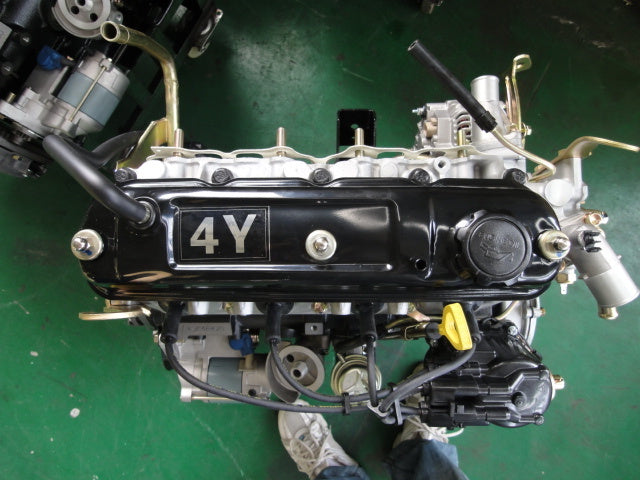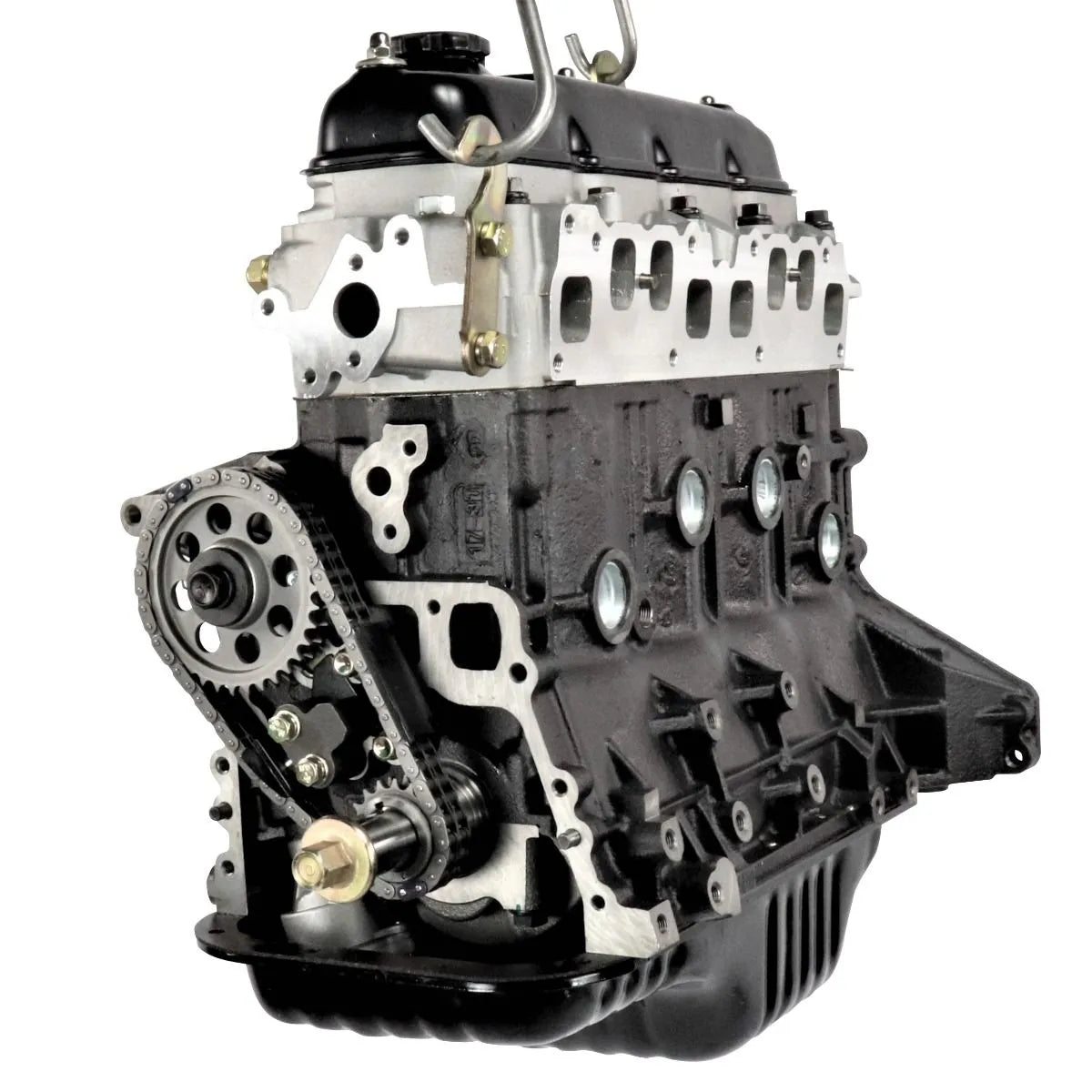Checking Out the Numerous Kinds of Engine: Which One Fits Your Demands?
Internal combustion engines proceed to control due to their integrity, while electrical engines are getting traction for their sustainability. Hybrid engines offer a functional concession, and diesel engines stand out for their power in demanding applications.

Internal Burning Engines
Interior combustion engines (ICEs) are the backbone of modern-day transport, powering a huge variety of cars from automobiles to aircrafts. These engines operate the principle of converting gas right into mechanical energy via a collection of controlled surges within a combustion chamber. One of the most common kinds of ICEs include fuel engines, diesel engines, and rotating engines, each created to meet certain performance and performance needs.
Fuel engines commonly use spark ignition, while diesel motor depend on compression ignition, leading to distinct distinctions in gas efficiency and power result (4y engine). Rotary engines, or Wankel engines, use a compact layout and smooth operation, however are less frequently used in mainstream applications
ICEs have actually undergone substantial advancements in modern technology, including the intro of turbocharging and gas injection systems, which boost overall effectiveness and efficiency. Despite their effectiveness renovations, ICEs face enhancing analysis due to their environmental effect, specifically regarding greenhouse gas exhausts. As the automotive industry progresses, the future of ICEs remains a topic of discussion, balancing performance, effectiveness, and ecological factors to consider. Nonetheless, they remain to play a critical duty in global transportation facilities.
Electric Engines
As concerns about environmental sustainability and nonrenewable fuel source dependency grow, electric engines have become an engaging choice to internal burning engines. These engines utilize electrical motors powered by batteries or fuel cells, offering a cleaner and a lot more reliable motive powers.
One of the primary benefits of electrical engines is their decreased emissions. Unlike traditional engines that melt nonrenewable fuel sources, electric engines generate absolutely no tailpipe discharges, considerably lowering air contamination and adding to improved public wellness. Furthermore, the efficiency of electrical motors typically surpasses that of inner combustion engines, transforming a higher proportion of power from the source of power right into functional power for motion.
Electric engines are also significant for their quiet procedure, making them optimal for city atmospheres. 4y engine. The simplicity of their style results in less moving components, which can lead to minimized maintenance expenses and increased integrity in time
Nonetheless, challenges stay, consisting of battery production influences, charging facilities, and range restrictions. Regardless of these obstacles, the expanding investment in electrical vehicle innovation and renewable resource sources factors towards a promising future for electrical engines, placed to play an important duty in the change toward lasting transport.
Crossbreed Engines
Blending the advantages of both conventional and electrical inner burning engines, hybrid engines represent a flexible option in the pursuit for efficient and sustainable transportation. These engines integrate a fuel or diesel motor with my latest blog post an electrical motor, enabling enhanced fuel effectiveness and lowered exhausts compared to conventional cars.
Hybrid engines run in numerous settings, making use of the electric motor for low-speed driving and the internal burning engine for higher rates or when even more power is needed. This dynamic operation not just boosts fuel economic situation yet likewise adds to a smoother driving experience. Regenerative stopping is an additional vital feature, recording power typically lost throughout braking and redirecting it to recharge the battery.

As consumers increasingly focus on eco-friendliness, hybrid engines stand out as a practical selection, using an effective equilibrium of performance, efficiency, and ecological responsibility. This flexibility makes them appropriate for urban travelling and long-distance travel alike.
Diesel Motor
Effectiveness and power are hallmarks of diesel motor, which have long been preferred for their robustness and gas economic climate. These engines operate on the concept of compression ignition, where air is compressed to a high temperature level before gas is injected, sparking it without the need for ignition system. This process allows diesel motor to accomplish greater thermal efficiency contrasted to gasoline engines, equating right into much better gas mileage and reduced co2 emissions.
Diesel engines are particularly fit for durable applications such as vehicles, buses, and commercial equipment, where torque and sturdiness are extremely important. Their design normally consists of more powerful elements to hold up against the higher pressures generated during procedure, leading to longer solution life and lowered maintenance costs.

Alternate Fuel Engines
While diesel engines have lengthy controlled the landscape of durable source of power, alternative gas engines are getting traction as practical options for an extra lasting future. These engines utilize a variety of gas, such as compressed natural gas (CNG), lp, hydrogen, and ethanol, intending to minimize greenhouse gas discharges and reliance on nonrenewable fuel sources.
One considerable advantage of different gas engines is their potential to lower carbon impacts. For circumstances, CNG engines discharge fewer contaminants compared to typical diesel motor, making them suitable for metropolitan transit systems and fleets looking for to enhance air top quality. Ethanol, stemmed from biomass, not only minimizes emissions however additionally supports farming economic climates.
Hydrogen gas cells represent a sophisticated development in this world, offering zero-emission power with a chemical response between hydrogen and oxygen. Difficulties such as framework development and production expenses continue to be obstacles to widespread fostering.
Verdict
Internal burning engines supply integrity, while electrical engines focus on sustainability and decreased maintenance. Hybrid engines combine the benefits of both, improving effectiveness, whereas diesel engines offer exceptional power and torque for heavy-duty applications.
Crossbreed engines supply a flexible compromise, and diesel engines stand out for their power in demanding applications. The most usual kinds of ICEs find out here now include gasoline engines, diesel engines, and rotating engines, each created to satisfy specific efficiency and effectiveness needs.
Unlike traditional engines that melt fossil fuels, electric engines generate no tailpipe emissions, significantly decreasing air pollution and contributing to enhanced public health.Crossbreed engines operate in several settings, utilizing the electrical motor for low-speed driving and the interior burning engine for higher speeds or when even more power is needed. Crossbreed engines combine the benefits of both, enhancing performance, whereas diesel engines offer superior power and torque for durable applications.
Comments on “The Best Upgrades for Improving the Efficiency of Your 4Y Engine”